With teams pulling out and pros going elsewhere, is enduro racing dying?
The world governing body say enduro participation and viewer numbers are the best ever and independent events are thriving too. So why are pro teams quitting enduro racing and why are top riders diversifying into DH amidst rumors that enduro will be dead as a top level sport within a couple of years?
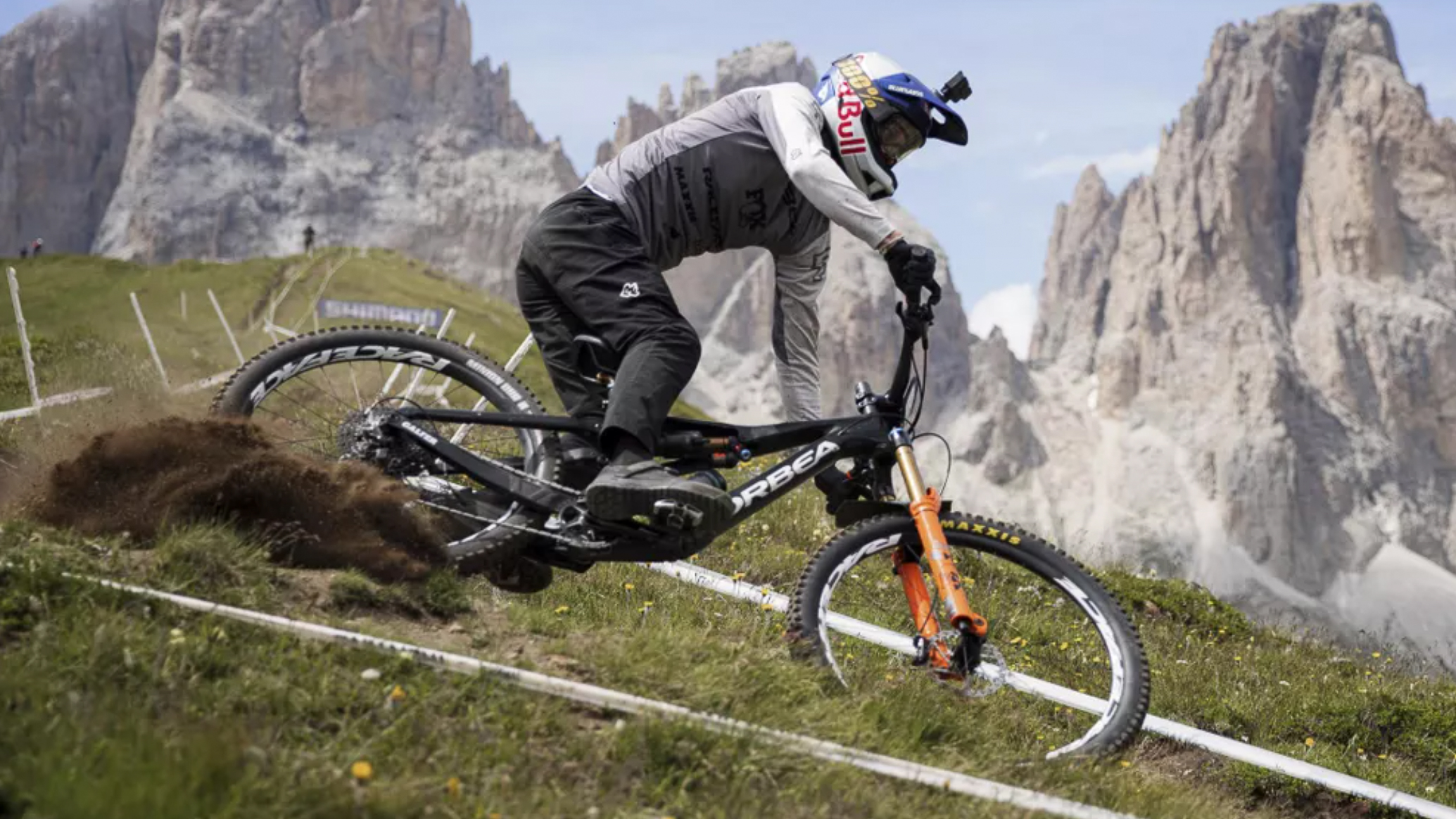
Enduro racing has looked like the sporting future of mountain biking for at least the past decade. It certainly reflected the bikes we were buying and the way more of us were riding. Its even got a growing e-MTB element that works really well with the format.
However, it seems all is not well with the top level of the sport after it’s first year under the new Discovery Warner Bros UCI umbrella. Several seemingly successful teams have made this season their last and there have been a number of high profile riders jumping into DH at the last races.
Is this just a reflection of the financial struggles within the bike industry as a whole and a couple of riders taking advantage of the EWS season ending before DH or is the writing on the wall for World Enduro?
Enduro is go
Let’s look at the positives, not least the numbers from the UCI. They are cycling’s governing body who now control the top level EDR race series formerly known as EWS and are clearly very chipper at the way things are going.
“The 2023 UCI Enduro and E-Enduro World Cup attracted more teams (46) than ever… Open (amateur) racing was also on offer at six of the seven rounds, giving a total of close to 4,000 entries from a record 55 nationalities… The format also enjoyed record audiences engaging with the sport… …a cumulative reach of 83.6 million across all the UCI Mountain Bike World Series social media accounts. Enduro and e-enduro content benefitted from the UCI Mountain Bike World Series’ rapidly expanding YouTube audience… …leading to 1.5 million views of enduro content on our YouTube channel alone.”
Chris Ball is VP of Cycling Events at Warner Bros. Discovery Sports so effectively the man tasked with transferring the sport to prime time television, after grooming it into a ‘global series’ in the first place. He says on the site that “It’s fantastic to see the growth of enduro as it enjoys its first season as a UCI World Cup and part of Warner Bros, Discovery where we have been able to leverage our unmatched global scale and storytelling ability to bring the sport to new audiences.”
That means it all sounds pretty sweet from the perspective of the proud new parents. And if they really are growing the audience figures (they need some caveating as the UCI are relatively new to broadcasting enduro racing so figures are bound to rise), then more people seeing the events is surely a good thing. Not least because the bikes being raced are the ones they’re most likely to buy – without or without a motor.
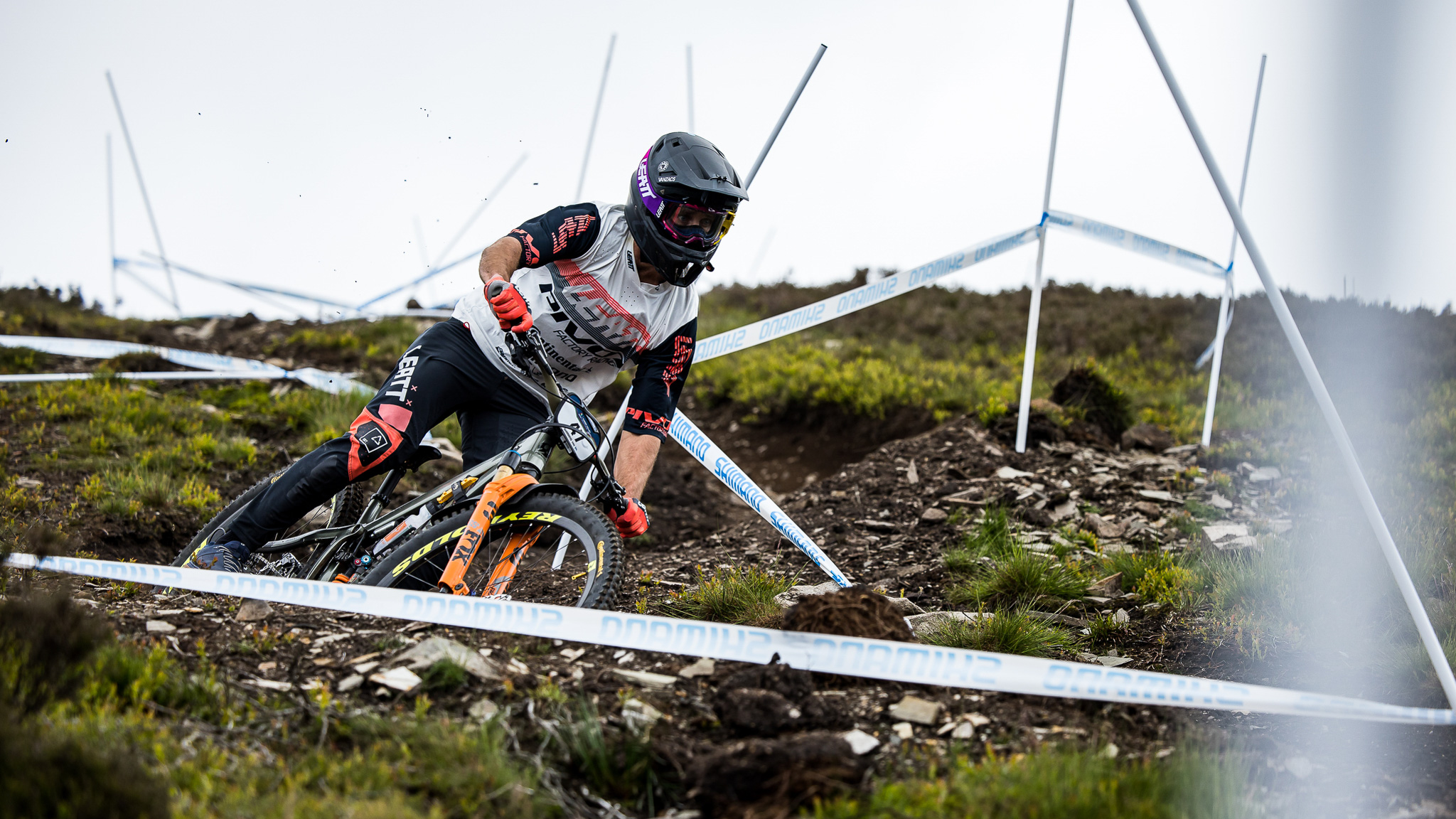
Enduro is a no
There’s already been a lot of complaints from the rider and fan side though. A quick straw poll of friends and industry contacts showed that whatever the official figures are, very few of them watched the racing compared to DH and XC coverage. That’s mainly because the largely ‘past tense’ coverage is seen as lacking the engagement and immediacy of DH and XC races. The old single epic loop format on wild off-piste trails in exciting new areas that become ‘must visit’ rider destinations has also been increasingly replaced by more ‘bike park’ centric events. Despite still being tagged a World Series, all the recently announced 2024 rounds are European with no rounds in New Zealand, South America, United States or Canada like there were in the ‘good old days’.
Many of the top teams including Rocky Mountain Race Face, Yeti / Shimano EP Racing, GT Racing, Ibis Cycles Enduro Race Team, Devinci Global Racing, Polygon Factory Racing Team and Cannondale Enduro Team are either confirmed or strongly rumored as not competing next year too. The darkest rumors suggest that the series won’t even exist in a recognizable form by as soon as 2025, and top enduro riders Richie Rude and Hattie Harnden both raced the DH World Cup rounds at the end of the season.
The backdrop to this though is that we’re seeing cut backs everywhere in MTB at the moment as the industry chokes on post Covid ‘complications’. Riders, ambassadors, marketing budgets, staff, bike ranges etc, are all being cut back savagely to save money to stop companies joining a growing number of bike firms already on the casualty list. Often because just like the TV side, there’s a new big investor involved who want to see hard financial gains not the ‘fudging along’ feel good vibe the bike world has often naively worked on. So if the choice is keeping the people who’ve been packing your orders for twenty years on the payroll, or funding flights to New Zealand for a team of racers who people may or may not even watch ride, then that’s a simple decision for a lot of companies.
And when it comes to Rude and Harnden, was riding DH prep for them switching disciplines (Rude started in DH anyway and Harnden finished fifth at Mont St Anne), or just because they had some spare time after the end of the EDR season?
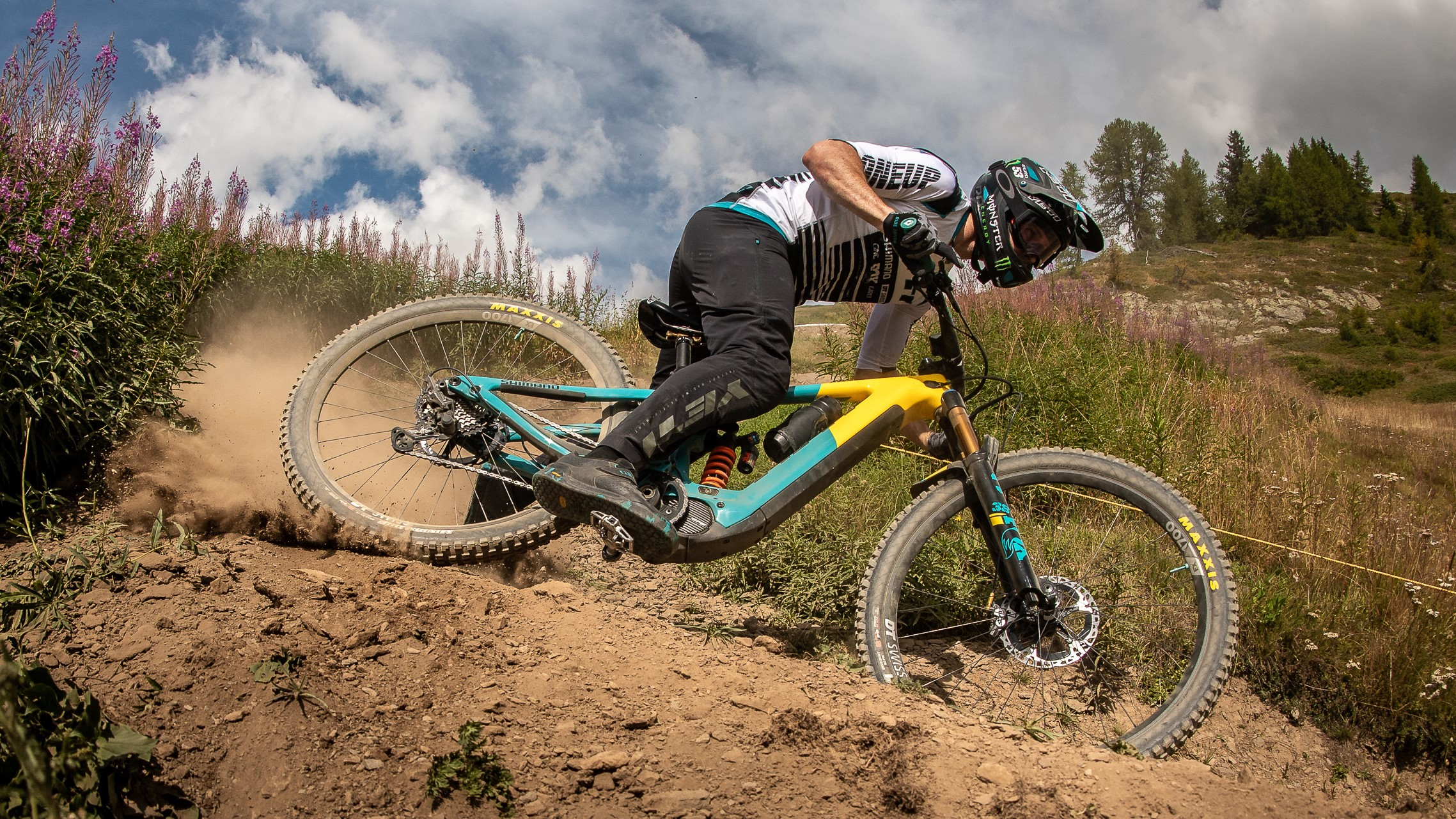
The bigger picture
What we also have to remember at this point is that we’re looking at a massive transitional period in how mountain biking is organised, promoted and presented. Plus, enduro is by far the hardest format to capture too. Trying to create consistent camera and drone coverage of the key spots on a single DH run or XC lap is hard enough. Trying to recreate that on multiple stages spread over at least one – potentially several – mountains is an almost impossible ask. Especially if you’re wanting a return to more wild, off-piste areas and courses that make the logistics and admin many times harder. Plus, we’re talking about super intense racing, often in dense forested areas and with multiple riders rather than clumped packs. So you can’t replicate the helicopter and follow-cam e-bike footage that makes the Cape Epic and Swiss Epic racers impressively watchable. As rallying versus Formula One has proved, although a multi-stage format can add extra levels of drama, it can also be a lot harder story to grab an audience with than a single ‘first past the post’ race.
It’s hard to reconcile people wanting rounds all over the world with those saying the cost of campaigning a full team is already too expensive as well. On the same note while sharing weekends with XC and/or DH World Cups creates complications in terms of space, accommodation costs, logistics etc, it presumably makes it easier from a broadcaster point of view. And the bottom line is that Discovery Warner Brothers are a broadcaster for whom commodifying and streamlining mountain bike racing is the key to making it profitable.
That also means considering bids from places that want to be put on the map as ‘go to’ riding destinations by global TV rather than being wholly influenced by riders or reputation. Potentially the reason we’re seeing several new venues – like Bielsko Biala in Poland and Bellwald in Switzerland – alongside classics like Finale Ligure in Italy on the 2024 calendar.
I could go on, but the basic line here – and in many other aspects of our sport – is that mountain biking is growing, and that inevitably means growing pains.
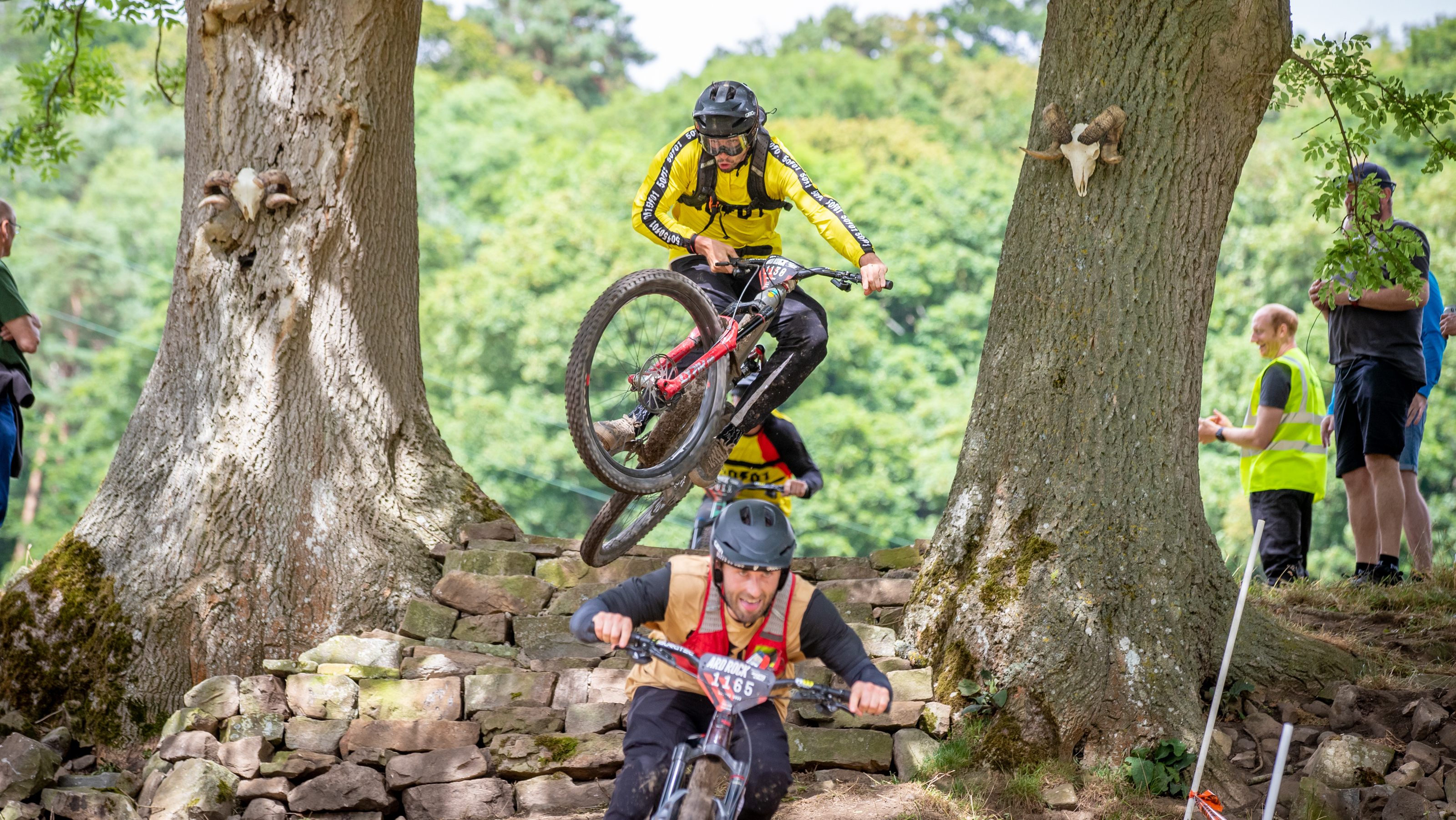
Does EWS / EDR actually matter?
The good news is that whatever happens at the top level of televised sport is unlikely to significantly affect ‘enduro’ as we know it. We’ve been riding increasingly long travel, DH optimised bikes that can still be pedaled uphill since we decided to ditch bar ends in favor of suspension forks. Even XC bikes are getting more rowdy now as the race courses are now as technical as enduro tracks were a few years ago. The World Championship course from this summer has even been demolished because sections of it were deemed too dangerous for public consumption.
While it’s good to see rider participation in the EDR/EWS races growing, a lot of the most popular and iconic events are nothing to do with the series anyway. Speaking to Joe Rafferty (the founder and organiser of Britain’s most popular participation event, the Ard Rock enduro festival) he said. “Whilst it’s great to have coverage of the format on TV, I believe the most important thing for mountain biking and its sustainable growth is that we as a community continue to support the building of quality trails, and organizers continue to run great events that are accessible, inspiring and challenging.” And while it might be lagging in TV viewing terms, enduro is twice as popular as XC and DH in terms of event numbers. Because as Joe continues. “Enduro is just a medium for the type of riding that a lot of people enjoy; a few hours out on the bike in a nice area, riding great trails fast, and taking it easy on the climbs to the top.” And whatever we might think of the coverage, hopefully at a base level, more people are going to see it on TV and be engaged enough to grab their bike and Google 'best enduro events' themselves.
So to answer the question in the headline, enduro ‘racing’ as most of us enjoy it is far from dying. Mainly thanks to the type of awesome independent events that created the ‘format’ in the first place. What happens at the top official level is less certain, more complicated and potentially more conflicted. But then isn’t that kind of cynically critical viewpoint what most mountain bikers have always had regarding anything ‘official’ since our ‘outlaw’ sport started?
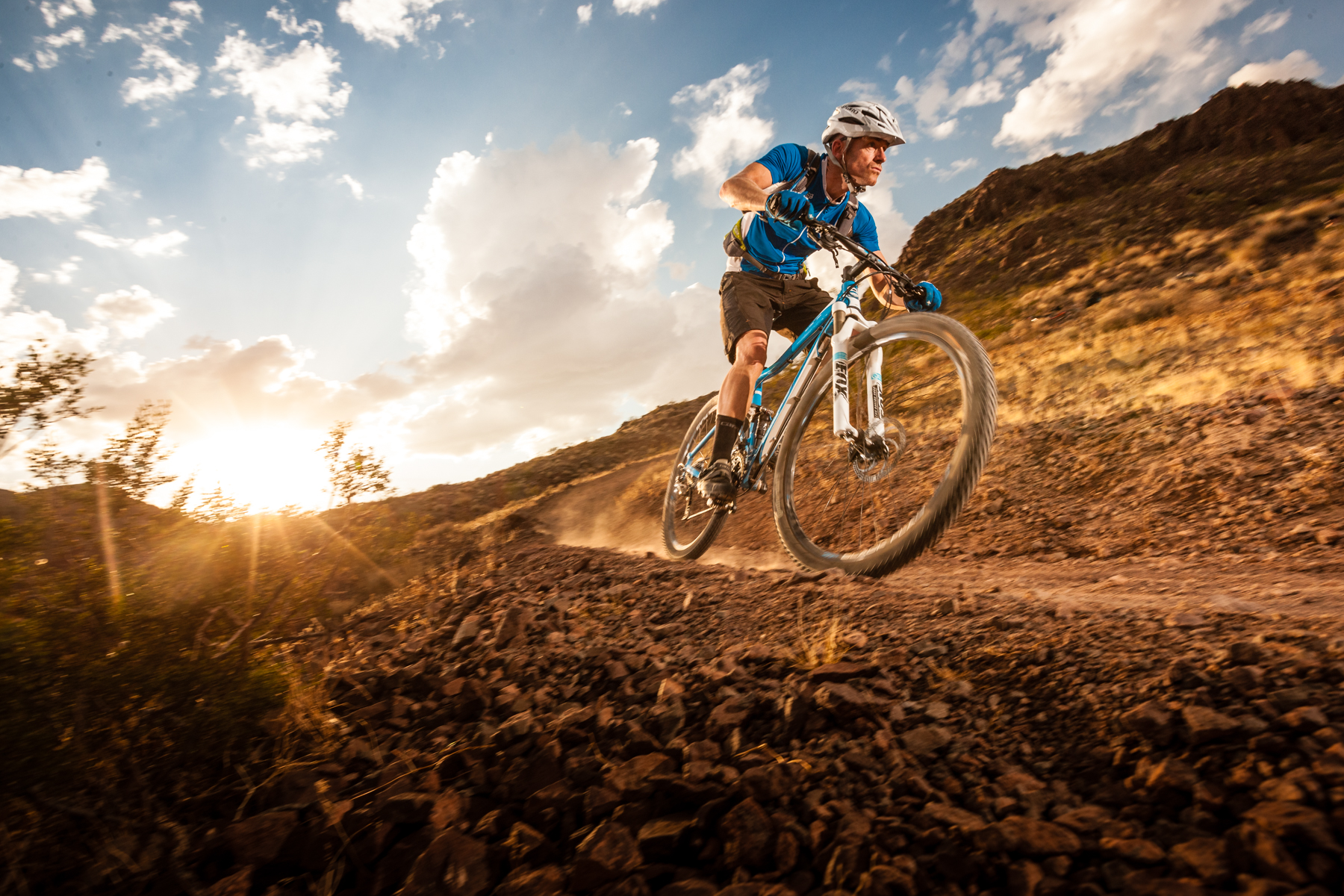
Guy Kesteven has been working on Bike Perfect since its launch in 2019. He started writing and testing for bike mags in 1996. Since then he’s written several million words about several thousand test bikes and a ridiculous amount of riding gear. He’s also penned a handful of bike-related books and he reviews MTBs over on YouTube.
Current rides: Cervelo ZFS-5, Specialized Chisel, custom Nicolai enduro tandem, Landescape/Swallow custom gravel tandem
Height: 180cm
Weight: 69kg
